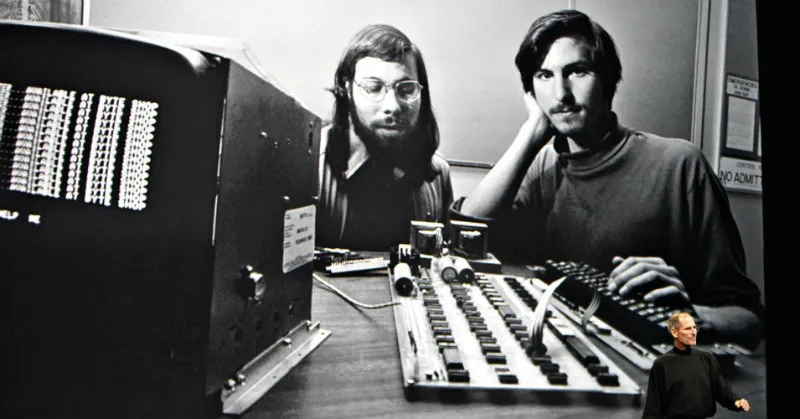Want to startup but have no idea how – this and other questions answered
It’s the first week of January, which means it is also the time for New Year resolutions. I have never quite understood New Year resolutions.
It has always seemed like a pretty arbitrary day to start something new. It’s also extremely common that people don’t follow through, since creating a habit is not easy. In fact, according to a study done by the University College London, on average, it takes about 66 days.

I tried making my resolutions public a couple years ago but only kept one out of two of them.
This year, I have just one resolution: to help entrepreneurs as much as I possibly can. The good news is that you can help me keep it by continuing to ask thought-provoking questions.
Our first post had thousands of readers and some really great questions. I have chosen a few to respond to here, so please keep them coming.
To send a question please email us at [email protected].
Let’s start with the questions. As a promise, these are actual emails from our readers.
- I’m a final year student in mechanical engineering and don't have any knowledge of coding. I want to startup but have no idea how. Where can I find guidance?
Shubham J. from Mumbai
The guidance you can get anywhere. Good guidance? I’m hoping you can get some of that from me.
One quick rant first. In general, I try to avoid using the term “coding” to describe software development. Coding has the connotation of being mechanical, while the best developers I know define software creation as an art.
Yes, at some point you need to sit in front of a computer and write code, but the art comes in the approach to solving a problem and finding the most elegant solution. For example, I can “code,” but would you want me to build the first version of a product that needs to be scalable for thousands of people? Probably not! I’m done ranting, back to your question.
The good news is that learning the basics of software development has never been more accessible. There are well-known examples of online courses, including:
- https://www.codecademy.com/
- https://ocw.mit.edu/courses/electrical-engineering-and-computer-science/Open courseware offered by the Massachusetts Institute of Technology – one of the best engineering schools in the United States
- https://www.edx.org/course/introduction-computer-science-harvardx-cs50x#.VNYLwvnF_0c –Intro course on computer science offered by Harvard University
Completing the courses above is only step 1. The next step I would typically recommend is to build something completely by yourself.
There honestly are few things that feel better than taking a new idea from concept to reality. I still remember the first thing I ever built, which was a virtual version of “craps” – a dice game in the US – for my TI-83 calculator back in middle school.
After you complete this step 2, you are a full-fledged developer but are still very much just beginning. Software development is a continual learning process, so make sure to stay up-to-date on new technologies and developments.
- What does it take for a student looking to start a startup before graduation? What if he thinks his idea would work? What are the barriers and how to overcome it?
Abhijeet R. from Bihar
Great question, in fact, I started my first company while I was still studying at Stanford University in 2008. I still believe that college is one of the best times to start a company.
My advice is not that different from what I would tell anybody starting a company:
Choose a problem you face personally, or deeply care about
I touched on this briefly in my first post about the best way to get into Y Combinator, but “most successful startups that I know started with a problem that the founders felt so acutely that they HAD to build a solution.”
Convince the smartest people around you to join you
Of the four points, this is probably the one that is the easiest in college and then becomes more and more difficult over time. There are few other times in your life when you will be around such highly educated people with so much time and energy.
Find an experienced entrepreneur/professor to advise you
I found college to be the best time to meet experienced entrepreneurs because they are always recruiting. Take advantage of this and try to meet as many as you can. If you find idea-energy fit with someone, then get them as excited as possible.
Through BASES, the Stanford entrepreneurship society, we met our first advisor, Anand Chandrasekaran, then a Stanford entrepreneur, and film producer. He had the perfect background to fill some strategic knowledge gaps for our online video business.
What began as an initial coffee conversation and product demo, evolved into him joining our Board of Directors and providing invaluable advice to help us grow as a company.
Build a prototype and get traction before you graduate.
The traction piece is probably the most difficult. I still remember making the six-hour drive to Los Angeles during one of our school holidays to try and sell our product to movie studios. The moral here is to be ready to do whatever it takes to find people that love and need your product.
- What's the most important thing to start a business? Is it an idea or a knowledge of finance? If it is finance, then what if I don't have the financial skills which are needed?
Suraj P. from Mumbai
Definitely the idea, which I would actually re-word as the problem that your company solves. I don’t think I’ve met a single company that nailed the problem, and failed because they could not collect or track the money.
Solve a meaningful problem in a great way, and you can fill the financial gap later with a co-founder or someone you hire.
- We are ready with an idea but don't know how to move further with a team of five. How do we get to a prototype and a business model?
Siya J. from Chandigarh
It is great that not only do you have a problem worth pursuing, but you have also convinced four people to join you in solving it. That said, with a team of five, you should definitely be able to create a prototype of your product. If not, then you should take a look at the team and figure out which skills you have and which are missing.
One of the key traits of an early founding team is non-overlapping skillsets. For example, if you are a business person, and cannot create a product on your own, you should find someone with the technical ability to do so and vice versa. You can’t have a Steve Jobs without a Steve Wozniak!

Hope you enjoyed the questions, and if you have comments please leave them below or shoot us an email.



